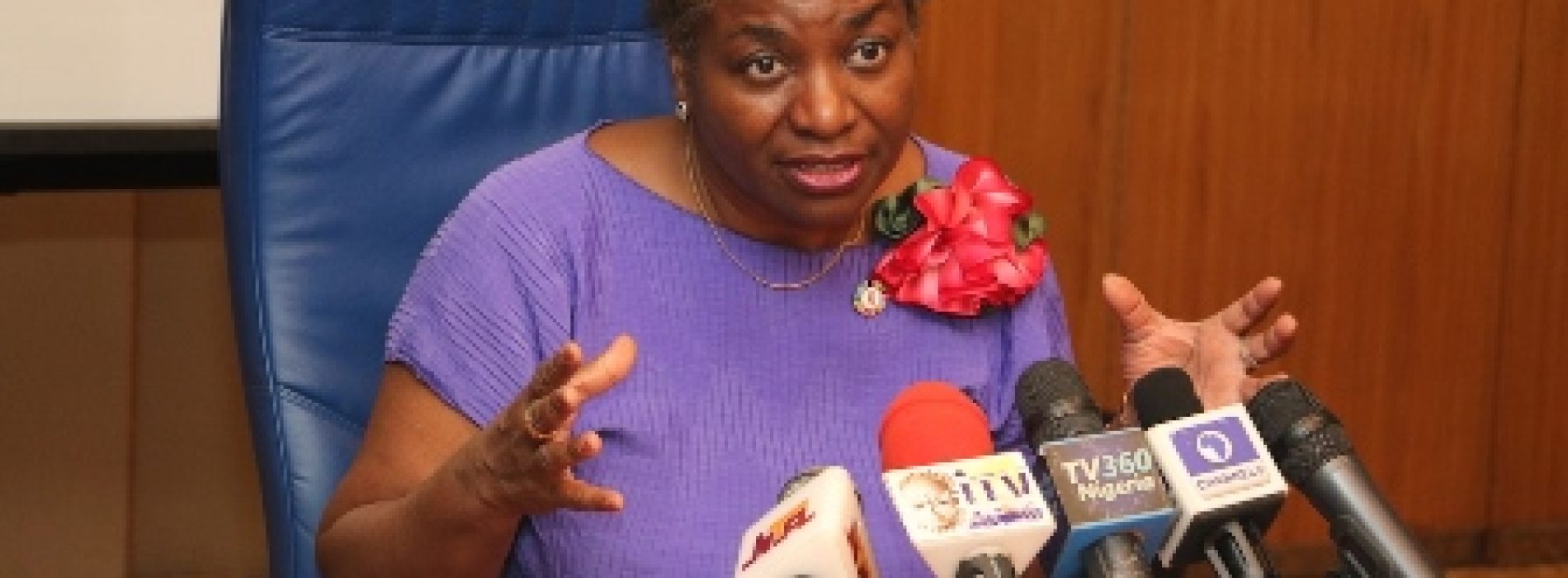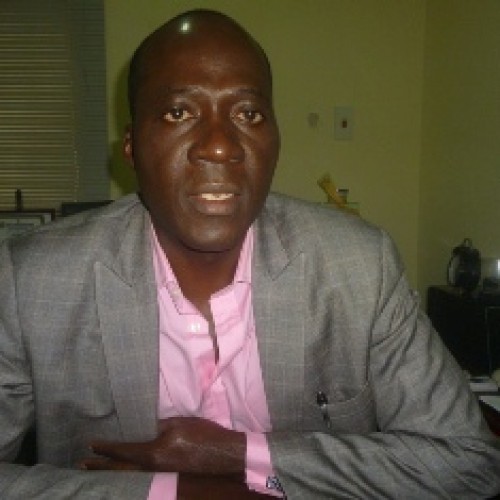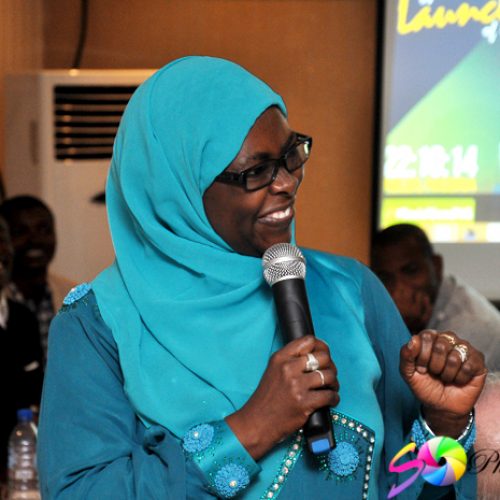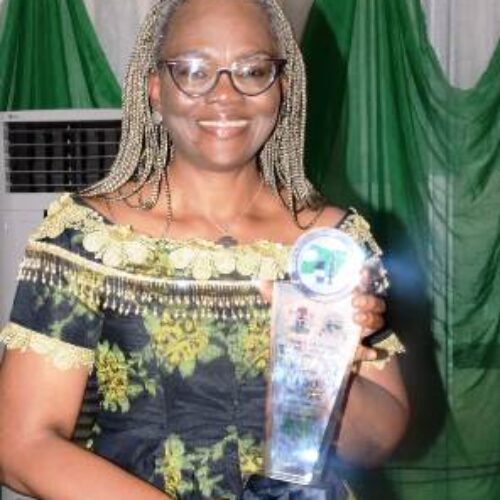Girl child education key to crashing maternal, child deaths globally – UNFPA Executive Director
Newly-appointed Executive Director, United Nations Population Fund, UNFPA, Dr Nathalia Kanem, is eager to see a world with zero child and maternal deaths by 2030 when, hopefully, the Sustaining Development Goals would have been achieved. In this interview with select journalists in Abuja during her visit to Nigeria for the just-concluded FP 2020 Reference Group Meeting, Nathalia revealed, among others, that many mothers who die from pregnancy-related conditions are young girls who are supposed to be in school or acquiring skills elsewhere to enable them become successful adults who will make great contributions to families, communities and nations, but are denied such rights. Our correspondent,Marcus Fatunmole, who was part of the media team, reports. Excerpts:
Q: Family planning commodities are limited in supply in Nigeria what plans does the UNFPA have to make them available?
UNFPA works around the word to ensure that every pregnancy is wanted. We want to ensure that every child birth is safe, and that the potential of young people is fulfilled. This is true in Nigeria, this is true all right around the world where UNFPA works. The legacy of UNFPA stands on the shoulders of giants, including the late great Prof Babatunde Osotimehin who worked tirelessly to ensure that in every corner of the globe, family planning commodities is available, affordable and accessible for the women, for the adolescent girl and the couples that are looking to their future. Couples want to be able to plan their families so they can plan for their future.
Women are entrusted with the responsibility of giving life to the next generation. Women in Nigeria like women everywhere else on the planet wish to have the immediate possibility of using family planning services and things like condoms and modern mix of methods that they can choose from, a method that is right for them and for their birth spacing plans. Specifically here in Nigeria, UNFPA is working very closely with the Ministry of Health, which is ably led by your minister, Prof. Adewole, who is a leader in the family planning movement, not just in Nigeria but around the world. He hosted, just over the past two days, Family Planning 2020 and FP 2020 is co-chaired by UNFPA. We are endeavoring to make sure that a modern mix of methods is available in rural villages, in urban areas and the quality of services that go along with the provision of contraceptives is up to what every woman deserves.
So, I am looking forward to UNFPA assisting to expand the range of options that are available, to expand the range of primary health care posts that will have family planning that are available to every woman who so desires.
How can UNFPA, under your leadership, further assist the Nigerian girl to improve her reproductive health knowledge?
Nigeria, like much of Africa, is extremely a useful country. You also have a vibrant, exciting cadre of young people who learn their intelligence, who learn their creativity, who learn their talents across a range of endeavours. We are proud to put young people first here in Nigeria as we have set across the world. There are two things that Nigeria, like anywhere else, can do to privileged young people as they are growing up and coming of age.
The first one is to focus on education of the young child. The girl child is a precious part of the Nigerian society. We celebrate the girl child because she has the potential to change the world once she is treated equally as boys and girls are equal. She needs education, she needs to be protected and she needs to be informed. And, UNFPA endorses the efforts of Nigeria to bring education to every girl child in the country.
Education is a marker for progress in your family. If your mother is educated, and the girl child would be a mother in the future, at the time she chooses that is ripe for here, once she is educated, the family would be healthier than a family where the mother has a misfortune of not being able to complete her education. She will be happier and her family will be healthier. In that sense, education of the girl child is a very important investment as we look for development in the future. Nigeria needs many hands to build its future and it must be complete people. Women are half of the equation and solution of any country.
A well-equipped young woman who can support herself, who can be an equal partner with her husband, who can educate her children and contribute to the economy; this is part of the equation that is going to make Nigeria to be strong. The second observation that I have is this one. Young people deserve correct information to enable them make intelligence choice about the plan they are making for their future.
We shouldn’t shy away from giving correct information to young people. So, we need every young person to seek correct information, not misinformation, not misconception. Go to reliable sources. This means the parent must be informed; it means the teachers must be informed. It means religious leaders of the community, traditional leaders of the community, midwives of the community have to be source of good information for the young people.
There is nothing secret about having a healthy, happy relationship. There is nothing secret about delaying certain things like having a baby too young that can affect the rest of your life. UNFPA is committed to providing information which is age-appropriate, which is in a language that people can understand, and in working within the framework of the Nigeria government to make sure that every hamlet, every village, every town and every city, this life-saving reproductive health information can assist in avoiding sexually-transmitted disease like HIV. This life-saving information can protect the woman’s life if she knows she should deliver at the hands of a skilled birth attendant. It is also important for couples to plan their family. So, the information about how one and with whom a girl or woman chooses to have a baby is very important. So, we should not hoard information, we should share information, and we should not be misinformed. Information should be correct life-saving information.
I like to give you one example. Many young teenage girls are falling pregnant in Nigeria at the time they interrupt their education. At times, because they are victimized, they don’t understand the fundamentals of pregnancy. So, why will I blame my daughter if I did not provide information for her to protect herself from people who might want to misguide her, whether it’s in home, whether it’s in school, whether it’s on the web, UNFPA wants to put as much information in the hands of young people so that they can make intelligence choices about things that really have huge effects on their ability to compete in the society where education is still fundamental.
We also feel that the birth of a child should be an occasion for everyone to rejoice. We don’t want to cry, when the mother has died in childbirth. We want to make sure there is prenatal care. We want to make sure that there is an understanding of what to do when something goes wrong in labour. We want to work hand in hand with government. We want to make sure that we equip the health post and the hospital appropriately to achieve that life-saving mission.
So, with the fact we can celebrate when we have happy occasion of a child being born, I will like to say that in Nigeria like in other places, anytime a woman dies in childbirth, so many others have fistula, so many others have terrible complications, so many others whose babies may have been born but born with birth-related conditions. It’s for UNFPA, working with other United Nations agencies, under the aegis United Nations Development Framework for health, for education, for gender equality to be sure that we do our part that no woman dies while giving birth.
The humanitarian situation across the world is increasing alarmingly. We have never had so many refugees as we have now; more than 65 million refugees in the world and additional number of people who are displaced within their homeland because of conflict. The noble mission of the United Nations to help nations and the scourge, that is war, is even more important today than it has ever been. And, as UNFPA, we feel the pain of Nigeria, well in the northeast more than any region. There is conflict, there is displacement. And, it is always women, girls who bear the brunt of the pain. They have to scramble and flee, they have to look after children and the elderly.
So, we are doing whatever we have in our power to assist the UN as we try to protect lives and to defend the proposition that even in terrible circumstances, we have to look after the need of women and girls. And, we do this in concert with the Ministry of Women Affairs and including other arms of government, especially health as I have mentioned earlier.
Leaders and representatives can explain some of the particular things we are doing in our northeast office. And, we are very proud that we have been able to deliver services and care to hundreds of girls and their families so that they are rehabilitated and the family understand and accept them when they come back.
Something terrible can happen to a girl, something terrible can happen to a woman. If we take care to help her, to give to her that support, to give her that counselling, she can recover and find her place in the society. We appeal to young people everywhere to make sure that we do not stigmatize girls who have been harmed because of conflict and other situations. We have to love them, we have to protect them, we have to rehabilitate them, and we want them to be fully functioning members of society once again.
You just assumed office as the newly appointed Executive Director of UNFPA. With your robust background as a team player, what are your agenda?
We are proudly building our legacy, much of which was put into place by no other than late Babatunde Osotimehin who was in many spheres, including his commitment to making sure that no woman dies while giving birth. In the next phase, the vision for UNFPA is that by the year 2030 when the Sustaining Development Goals hopefully will be achieved, we would put an end to death in childbirth; zero maternal death is the first part of what UNFPA will work vigorously and tirelessly on in the next period.
As a practical matter to end death in child birth, girls as 10 to 11 should understand their body. They also have to understand their place in the society because child birth is not just a matter of Biology, it is a matter of the expectation of the society. So, no matter where you are in Nigeria, as a girl, you deserve information that is going to help you from getting pregnant too young, from getting married when you are not mature, and from understanding that we expect a lot from you to contribute to a country that is still developing, that is still building itself. And, we need all hands on deck, including the girl child.
A girl child should understand why it is wise to delay pregnancy. She is going to be stronger than one who have children so young and never had the chance to complete their education. There is a great risk to her health. And, when we talk about mother dying, a significant portion of the time, the mother was a girl, she was not a woman. So, we need to understand the high risk to our girl of having a baby when she is not ready physically, mentally and not equipped to prepare for next generation.
When the child is born, the child has to be fed, has to be loved, need to have shoes, school fees. So, if I am 15, I am not able to handle all of these. If I am 15, my body is not mature enough for me to be able to bear these burdens for society. And, I should not be blamed for things I was not prepared for. So, my family, my school, my religious community must help me to stay on track so that I finish my education.
For every mother that dies, there are so many others who are harmed, who did not have proper care. So, we will like to do things like help the Ministry of Health of Nigeria which has leadership that is attending to how we put the pieces together to end death of mothers. As UNFPA, it is our duty, it is our proud duty to sit with government to share the learning that we have to learn from what is going on here, and to use all of our combined forces to work with civil society, to work with the health workers themselves, to work with the young people, the parents, the greater community, to work with the great universities in Nigeria so that everyone understands.
Our second big goal is to ensure that the flow of information that relates to family planning is readily accessible. Just recently, Nigeria launched the ‘Green Dot’ programme. It is letting people know, we are opening our doors for you to be able to plan your family. We want to help you have a family planning that works for you. Sometimes, people want to space their children or sometimes they want to delay the next one. Sometimes, people want to have more children, all of this means that you have to be prepared, you have to be informed.
The third big goal is to ensure that there is no place for violence in the lives of our women and girls. Violence is very important for the whole of the society to consider, and it is a place where men have very important roles to play. The girl child should understand that violence is an abomination against me, and she must be encouraged to speak out if people are doing things to her that make her uncomfortable. She must be encouraged to understand that she should not be a victim.
And, young man too must understand that they must defend girls at all times when others decide to perpetrate violence against them. What kind of violence am I talking about? I’m talking about a whole range, from disrespecting a woman or a girl by her refusal of (bad) names that we call her and certainly by causing her physical harm. UNFPA is concerned that gender-based violence against girls and women is something that too many women experience in the course of their lifetime. We are concerned that sexual violence is being perpetrated against women and girls. We strongly condemn things like rape and acts of indecency against girls and women.
We figure that as a society, we have to consider other ways of dealing with conflict and war, other than violence. So, we are very eager to work with Nigeria and every country in the world to sit together, to bring faith-based organizations, to bring youths leaders, to bring everyone to assist government in this endeavour to end gender-based violence in the country and in the world.
We see this as part of young persons’ potentials being fulfilled because in an atmosphere of peace, young people reach for the sky. In the atmosphere of peace, they can use their creativity as we saw during the “Young People First” event that Nigeria hosted. We want to encourage young people to explore new ways of thinking, including technology and digital spectrum.
What is UNFPA doing to utilize technology to advance access to family planning in the hard-t- reach populations, including adolescents?
Nigeria is a leader in technology, and I think a thing like a phone technology, you are actually bringing a whole to the rest of Africa and the world. Young people have a part to play in the new discoveries. There are new discoveries to be made, and we want them to be connected, we want them to be aware.
UNFPA is targeting zero maternal death by 2030, what efforts are in place to ensure that male (couple) is carried along in family planning?
As part of my background, I received part of my medical training right here in Nigeria. Some of you may know that I was a student of Great Olikoye Ransome Kuti. I was privileged to know so many other renowned medical men and women of this country. So, it is a pleasure to be back. The understanding that I have about the roles that society plays in shaping reproductive health came from working in rural villages in Nigeria. From working in Ogbomoso and other places of public health training. Both man and woman have a responsibility of ensuring healthy child-birth. It is a two-person composition. The women and their partners together make decision about family size, about how to educate their progeny, and, also about the future legacy of a family. This is a very profound and deep traditional aspect of every family and family ties that helps security of every society.
This is why UNFPA feels every woman must have the opportunity to exercise their human right to decide when, how many and with whom she wishes to have the baby. This is going to be a lifelong commitment of which that woman has to be ready not only physically, but also in so many other ways, mentally, physically as well as having been educated so that she and her partner can provide for the new life they are bringing into their world. The role of father is very important is the self-image of the girl. The girl needs a father figure in order to understand her place in the society and to feel protected by the extended family.
This is why it’s so important for the expectation of the family to be that our daughter must be educated by allowing the child to grow and to be educated and understand herself. She is going into a relationship where she will be equal and respected. The shared responsibility of man is to man is to make sure he is a supportive member of the family when it comes to girl rights and girls education. I am very proud that Nigeria is in the leadership in this drive and in this understanding.
There are many males leaders in Nigeria, including the late Babatunde Osotimehin who have vowed that the girl child is the equal of any man. She must get the same opportunity like anyone. When the girl is encouraged from the tender age, she is going to be able to contribute to the economy of that country. They are going to contribute to the economy of the country. The bonus that we call the demographic dividends is important for countries with population like Nigeria.
As the population of Nigeria increases very rapidly, the scarce resources, everything from water, from land, from the health care dollar has to stretch further and further. And, I believe that is the reason Nigeria, much like the rest of Africa Union countries, has said that democratic dividends is inseparable from family planning, which women should be in charge of understanding. It should be completely voluntary. But, we need to make sure they have the right information and the right services, the right mix of contraception.
About author
You might also like
Stroke on increase in Nigeria
Dr Biodun Ogungbo is a Consultant Neurosurgeon and Director, Stroke Action Nigeria. He currently practices at Lifebridge Diagnostic Centre, Abuja. A passionate crusader against stroke, Ogungbo says incident of stroke
We’ll stop malaria from the earth – Gates Foundation Country Rep
…says Foundation spends N250m on health, other interventions in Nigeria yearly Can you imagine the earth without the malaria scourge? Dr Mairo Mandara, Country representative, Bill and Melinda Gates
‘We have successfully remodeled Edo State’s health care system’
Exactly one year ago, the governor of Edo State, Mr. Godwin Obaseki appointed Prof. Obehi Akoria, a consultant physician and head of the Geriatric team of the University of Benin










0 Comments
No Comments Yet!
You can be first to comment this post!